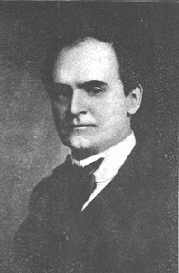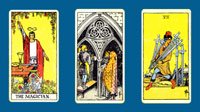William Walker Atkinson
|
Profile
Birthdate: 1862-1932 William Walker Atkinson was an attorney, publisher and author who was one of the pioneers of the New Thought movement in America in the early 1900s. He was the editor of New Thought magazine (1901-1905) and the Journal of Advanced Thought (1916- 1919).
|
 |
Books
The Art of Logical Thinking - William Walker Atkinson
Amazon Synopsis: REASONING
"Reasoning" is defined as: "The act, process or art of exercising the faculty of reason; the act or faculty of employing reason in argument; argumentation, ratiocination; reasoning power; disputation, discussion, argumentation." Stewart says: "The word reason itself is far from being precise in its meaning. In common and popular discourse it denotes that power by which we distinguish truth from falsehood, and right from wrong, and by which we are enabled to combine means for the attainment of particular ends."
|
By the employment of the reasoning faculties of the mind we compare objects presented to the mind as precepts or concepts, taking up the "raw materials" of thought and weaving them into more complex and elaborate mental fabrics which we call abstract and general ideas of truth. Brooks says: "It is the thinking power of the mind; the faculty which gives us what has been called thought-knowledge, in distinction from sense-knowledge. |
It may be regarded as the mental architect among the faculties; it transforms the material furnished by the senses ... into new products, and thus builds up the temples of science and philosophy." The last-mentioned authority adds: "Its products are twofold, ideas and thoughts. An idea is a mental product which when expressed in words does not give a proposition; a thought is a mental product which embraces the relation of two or more ideas.
The ideas of the understanding are of two general classes; abstract ideas and general ideas. The thoughts are also of two general classes; those pertaining to contingent truth and those pertaining to necessary truth. In contingent truth, we have facts, or immediate judgments, and general truths including laws and causes, derived from particular facts; in necessary truth we have axioms, or self-evident truths, and the truths derived from them by reasoning, called theorems." Read online or download
A Series of Lessons in Gnani Yoga - William Walker Atkinson
From Chapter One: The Yogi Philosophy may be divided into several great branches, or fields. What is known as "Hatha Yoga" deals with the physical body and its control; its welfare; its health; its preservation; its laws, etc. What is known as "Raja Yoga" deals with the Mind; its control; its development; its unfoldment, etc. What is known as "Bhakti Yoga" deals with the Love of the Absolute—God. What is known as "Gnani Yoga" deals with the scientific and intellectual knowing of the great questions regarding Life and what lies back of Life—the Riddle of the Universe.
Each branch of Yoga is but a path leading toward the one end—unfoldment, development, and growth. He who wishes first to develop, control and strengthen his physical body so as to render it a fit instrument of the Higher Self, follows the path of "Hatha Yoga." He who would develop his will-power and mental faculties, unfolding the inner senses, and latent powers, follows the path of "Raja Yoga." He who wishes to develop by "knowing"—by studying the fundamental principles, and the wonderful truths underlying Life, follows the path of "Gnani Yoga." And he who wishes to grow into a union with the One Life by the influence of Love, he follows the path of "Bhakti Yoga." Read online or download
A Series of Lessons in Raja Yoga - William Walker Atkinson
From Chapter One: THE "I."
In India, the Candidates for Initiation into the science of "Raja Yoga," when they apply to the Yogi Masters for instruction, are given a series of lessons designed to enlighten them regarding the nature of the Real Self, and to instruct them in the secret knowledge whereby they may develop the consciousness and realization of the real "I" within them. They are shown how they may cast aside the erroneous or imperfect knowledge regarding their real identity.
Until the Candidate masters this instruction, or at least until the truth becomes fixed in his consciousness, further instruction is denied him, for it is held that until he has awakened to a conscious realization of his Actual Identity, he is not able to understand the source of his power, and, moreover, is not able to feel within him the power of the Will, which power underlies the entire teachings of "Raja Yoga." Read online or download
Clairvoyance and Occult Powers - William Walker Atkinson 1916
Lesson 1: The skeptical person who "believes only the evidence of his senses." The man who has much to say about "horse sense." "Common Sense" versus Uncommon Senses. The ordinary five senses are not the only senses. The ordinary senses are not as infallible as many think them. Illusions of the five physical senses. What is back of the organs of physical sense. All senses an evolution of the sense of feeling. How the mind receives the report of the senses. The Real Knower behind the senses. What the unfolding of new senses means to man. The super-physical senses. The Astral Senses. Man has seven physical senses, instead of merely five. Each physical sense has its astral sense counterpart. What the astral senses are. Sensing on the astral plane. How the mind functions on the astral plane, by means of the astral senses. The unfolding of the Astral Senses opens up a new world of experience to man. Read online or download
Dynamic Thought: Or the Law of Vibrant Energy- William Walker Atkinson 1906
From Foreword: This is a queer book. It is a marriage of the Ancient Occult Teachings to the latest and most advanced conceptions of Modern Science—an odd union, for the parties thereto are of entirely different temperaments. The marriage might be expected to result disastrously, were it not for the fact that a connecting link has been found that gives them a bond of common interest. No two people may truly love each other, unless they also love something in common—the more they love in common, the greater will be their love for each other. And, let us trust that this will prove true in this marriage of Occultism and Science, celebrated in this book. Read online or download
Genuine Mediumship or The Invisible Powers - William Walker Atkinson 1919
From Chapter One: It should be clearly understood by all students of occultism or psychic phenomena that man's knowledge and experience, normal or supernormal, is confined to the realm of Nature. There is a "ring pass-not" around the boundaries of the Kingdom of Nature which mortals cannot pass, no matter how high may be their degree of development and advancement. Even those great mystics whose writings are filled with the startling revelations of "union with the Divine," and of "At-one-ment with Deity," are under no illusion concerning this fact they know full well that only in so far as Deity involves itself in Nature—wraps itself up in the garments of Nature—can it be directly experienced by man, and thus actually known by him. Read online or download
The Hindu-Yogi Science Of Breath - William Walker Atkinson
From Chapter One: The Hindu Yogis have always paid great attention to the Science of Breath, for reasons which will be apparent to the student who reads this book. Many Western writers have touched upon this phase of the Yogi teachings, but we believe that it has been reserved for the writer of this work to give to the Western student, in concise form and simple language, the underlying principles of the Yogi Science of Breath, together with many of the favorite Yogi breathing exercises and methods. We have given the Western idea as well as the Oriental, showing how one dovetails into the other. We have used the ordinary English terms, almost entirely, avoiding the Sanscrit terms, so confusing to the average Western reader.
The first part of the book is devoted to the physical phase of the Science of Breath; then the psychic and mental sides are considered, and finally the spiritual side is touched upon. Read online or download
|
How to Read Human Nature - William Walker Atkinson 1916 From Chapter One: While the general subject of psychology includes
the consideration of the inner workings of the mind, the processes of thought,
the nature of feeling, and the operation of the will, the special subject of
Human Nature is concerned only with the question of character, disposition,
temperament, personal attributes, etc., of the individuals making up the race
of man. Psychology is general—Human Nature is particular. Psychology is more or
less abstract—Human Nature is concrete.
|
Psychology deals with laws, causes and
principles—Human Nature deals with effects, manifestations, and expressions.
Human Nature expresses itself in two general phases, i.e., (1) the phase of Inner States; and (2) the phase of Outer Forms. These two phases, however, are not separate or opposed to each other, but are complementary aspects of the same thing. There is always an action and reaction between the Inner State and the Outer Form—between the Inner Feeling and the Outer Expression. If we know the particular Inner State we may infer the appropriate Outer Form; and if we know the Outer Form we may infer the Inner State. Read online or download
The Human Aura: Astral Colours and Thought Forms - William Walker Atkinson 1940
From Chapter One: Briefly, then, the human aura may be described as a fine, ethereal radiation or emanation surrounding each and every living human being. It extends from two to three feet, in all directions, from the body. It assumes an oval shape—a great egg-shaped nebula surrounding the body on all sides for a distance of two or three feet. This aura is sometimes referred to, in ordinary terms, as the "psychic atmosphere" of a person, or as his "magnetic atmosphere."
This atmosphere or aura is apparent to a large percentage of persons in the sense of the psychic awareness generally called "feeling," though the term is not a clear one. The majority of persons are more or less aware of that subtle something about the personality of others, which can be sensed or felt in a clear though unusual way when the other persons are near by, even though they may be out of the range of the vision. Being outside of the ordinary range of the five senses, we are apt to feel that there is something queer or uncanny about these feelings of projected personality. But every person, deep in his heart, knows them to be realities and admits their effect upon his impressions regarding the persons from whom they emanate. Even small children, infants even, perceive this influence, and respond to it in the matter of likes and dislikes. Read online or download
Memory: How to Develop, Train and Use It - William Walker Atkinson 1919
From Chapter One: Memory is more than "a good memory"—it is the means whereby we perform the largest share of our mental work. As Bacon has said: "All knowledge is but remembrance." And Emerson: "Memory is a primary and fundamental faculty, without which none other can work: the cement, the bitumen, the matrix in which the other faculties are embedded. Without it all life and thought were an unrelated succession." And Burke: "There is no faculty of the mind which can bring its energy into effect unless the memory be stored with ideas for it to look upon." And Basile: "Memory is the cabinet of imagination, the treasury of reason, the registry of conscience, and the council chamber of thought." Kant pronounced memory to be "the most wonderful of the faculties."
Kay, one of the best authorities on the subject has said, regarding it: "Unless the mind possessed the power of treasuring up and recalling its past experiences, no knowledge of any kind could be acquired. If every sensation, thought, or emotion passed entirely from the mind the moment it ceased to be present, then it would be as if it had not been; and it could not be recognized or named should it happen to return. Such an one would not only be without knowledge,—without experience gathered from the past,—but without purpose, aim, or plan regarding the future, for these imply knowledge and require memory. Even voluntary motion, or motion for a purpose, could have no existence without memory, for memory is involved in every purpose. Not only the learning of the scholar, but the inspiration of the poet, the genius of the painter, the heroism of the warrior, all depend upon memory." Read online or download
Mystic Christianity: Or the Inner Teachings of the Master - William Walker Atkinson 1908
From Chapter One: THE FORERUNNER.
Strange rumors reached the ears of the people of Jerusalem and the surrounding country. It was reported that a new prophet had appeared in the valley of the lower Jordan, and in the wilderness of Northern Judea, preaching startling doctrines. His teachings resembled those of the prophets of old, and his cry of "Repent! Repent ye! for the Kingdom of Heaven is at hand," awakened strange memories of the ancient teachers of the race, and caused the common people to gaze wonderingly at each other, and the ruling classes to frown and look serious, when the name of the new prophet was mentioned.
The man whom the common people called a prophet, and whom the exalted ones styled an impostor, was known as John the Baptist, and dwelt in the wilderness away from the accustomed haunts of men. He was clad in the rude garments of the roaming ascetics, his rough robe of camel's skin being held around his form by a coarse girdle of leather. His diet was frugal and elemental, consisting of the edible locust of the region, together with the wild honey stored by the bees of the wilderness. Read online or download
Practical Mind-Reading - William Walker Atkinson 1907
From Lesson Two: Nearly everyone has had evidences of Mind Reading or Thought Transference in his or her own life. Nearly every one has had experiences of being in a person's company when one of the two would make a remark and the other, somewhat startled, would exclaim, "Why, that's just what I was going to say," or words to that effect. Nearly every one has had experiences of knowing what a second person was going to say before the person spoke. And, likewise common is the experience of thinking of a person a few moments before the person came into sight. Many of us have suddenly found ourselves thinking of a person who had been out of our minds for months, or years, when all of a sudden the per[Pg 14]son himself would appear. Read online or download
The Power of Concentration - Theron Q. Dumont
From the Introduction: We all know that in order to accomplish a certain thing we must concentrate. It is of the utmost value to learn how to concentrate. To make a success of anything you must be able to concentrate your entire thought upon the idea you are working out.
Do not become discouraged, if you are unable to hold your thought on the subject very long at first. There are very few that can. It seems a peculiar fact that it is easier to concentrate on something that is not good for us, than on something that is beneficial. This tendency is overcome when we learn to concentrate consciously.
If you will just practice a few concentration exercises each day you will find you will soon develop this wonderful power.
Success is assured when you are able to concentrate for you are then able to utilize for your good all constructive thoughts and shut out all the destructive ones. It is of the greatest value to be able to think only that which will be beneficial. Read online or download
Reincarnation and the Law of Karma - William Walker Atkinson 1908
From Chapter One: There are many forms of belief—many degrees of doctrine—regarding Reincarnation, as we shall see as we proceed, but there is a fundamental and basic principle underlying all of the various shades of opinion, and divisions of the schools. This fundamental belief may be expressed as the doctrine that there is in man an immaterial Something (called the soul, spirit, inner self, or many other names) which does not perish at the death or disintegration of the body, but which persists as an entity, and after a shorter or longer interval of rest reincarnates, or is re-born, into a new body—that of an unborn infant—from whence it proceeds to live a new life in the body, more or less unconscious of its past existences, but containing within itself the "essence" or results of its past lives, which experiences go to make up its new "character," or "personality."
It is usually held that the rebirth is governed by the law of attraction, under one name or another, and which law operates in accordance with strict justice, in the direction of attracting the reincarnating soul to a body, and conditions, in accordance with the tendencies of the past life, the parents also attracting to them a soul bound to them by some ties in the past, the law being universal, uniform, and equitable to all concerned in the matter. This is a general statement of the doctrine as it is generally held by the most intelligent of its adherents. Read online or download
Subconscious and the Superconscious Planes of Mind - William Walker Atkinson 2010
Amazon Synopsis: Subconscious and the Superconscious Planes of Mind, written by W.W. Atkinson in 1909, is a somewhat supernatural text on the different levels at which the mind works and functions. There are the sub-conscious (below normal), conscious (normal), and super-conscious (above normal) levels, which Atkinson describes in detail. He also covers the elements of each level-for example, in the subconscious our memory works and resides.
|
While based in hard facts, Atkinson uses the mind theories to justify instances such as telepathy and mind reading, in which he strongly believed. American writer WILLIAM WALKER ATKINSON (1862-1932) was editor of the popular magazine New Thought from 1901 to 1905, and editor of the journal Advanced Thought from 1916 to 1919. He authored dozens of New Thought books under numerous pseudonyms, including "Yogi," some of which are likely still unknown today. |
Thought-Culture - William Walker Atkinson 1909
From Chapter One: Man owes his present place on earth to his Thought-Culture. And, it certainly behooves us to closely consider and study the methods and processes whereby each and every man may cultivate and develop the wondrous faculties of the mind which are employed in the processes of Thought. The faculties of the Mind, like the muscles of the body, may be developed, trained and cultivated. The process of such mental development is called "Thought-Culture," and forms the subject of this book. Read online or download
Thought Vibration - William W. Atkinson 2012
Amazon Synopsis: THE Universe is governed by Law - one great Law. Its manifestations are multiform, but viewed from the Ultimate there is but one Law. We are familiar with some of its manifestations, but are almost totally ignorant of certain others. Still we are learning a little more every day - the veil is being gradually lifted. We speak learnedly of the Law of Gravitation, but ignore that equally wonderful manifestation, THE LAW OF ATTRACTION IN THE THOUGHT WORLD. We are familiar with that wonderful manifestation of Law which draws and holds together the atoms of which matter is composed - we recognize the power of the law that attracts bodies to the earth, that holds the circling worlds in their places, but we close our eyes to the mighty law that draws to us the things we desire or fear, that makes or mars our lives. PDF
Your Mind and How to Use It: A Manual of Practical Psychology - William Walker Atkinson 1911
From Chapter One: Perhaps the simplest method of conveying the idea of the existence and nature of the mind is that attributed to a celebrated German teacher of psychology who was wont to begin his course by bidding his students think of something, his desk, for example. Then he would say, "Now think of that which thinks about the desk." Then, after a pause, he would add, "This thing which thinks about the desk, and about which you are now thinking, is the subject matter of our study of psychology." The professor could not have said more had he lectured for a month. Read online or download
Do you like our website?
Please tell your friends about us.
Check out
Get a Religious Verse

Get a Spiritual Quote
Get a Free Tarot Reading

The Number One way to prevent Truth decay is to use mental floss daily.
-Swami Beyondananda
Peace I leave with you, my peace I give unto you: Not as the world giveth, give I unto you. Let not your heart be troubled, neither let it be afraid.
- John 14: 27, King James Bible
Some images on this site are Free Images from Dreamstime.com
Inch by inch, row by row, gonna make my garden grow. All it takes is a rake and a hoe, and a piece of fertile ground…
- John Denver, singer, songwriter
Well, the world’s not run by mothers. You know if it was, we’d all be taken care of.
- Faye Sanderson, my-spiritual-place.com

Donate to the Site and receive a free Angel Card Reading



